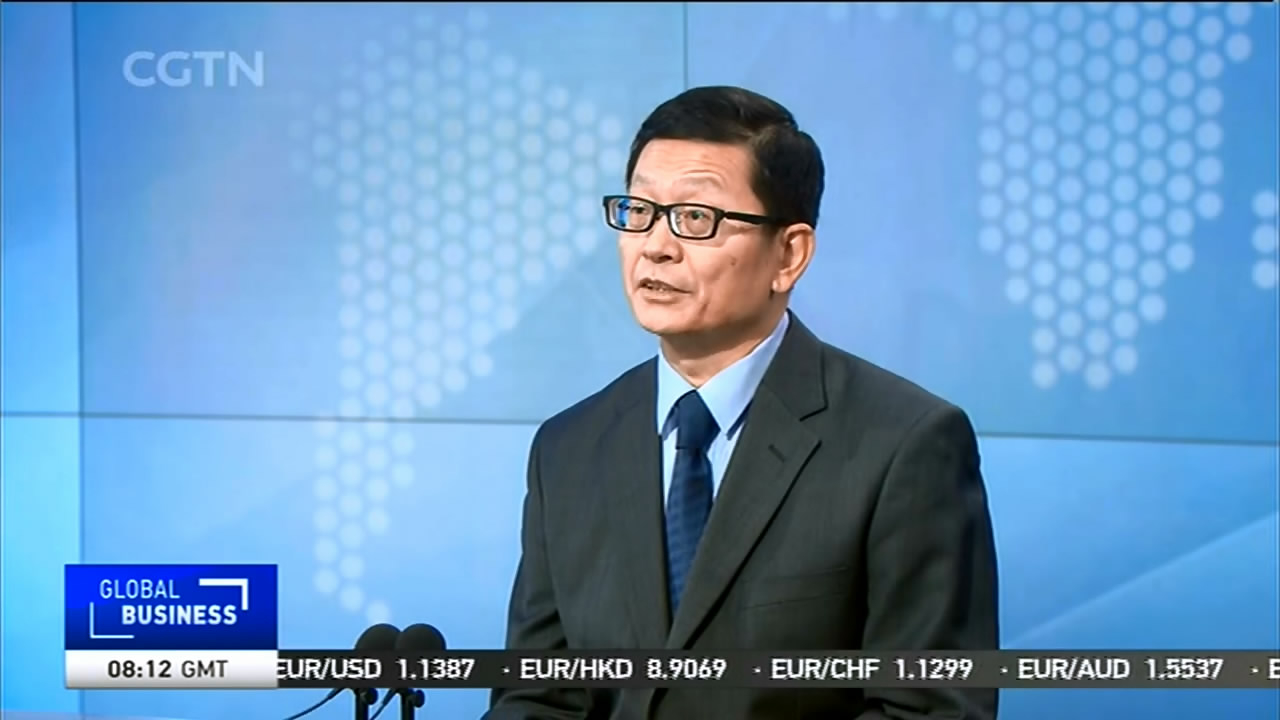
Business
22:50, 29-Nov-2018
Will global economy turn from cloudy to clear in 2019?
Updated
22:17, 02-Dec-2018
CGTN's Wang Yue
06:40

Several global institutions warn that the world economy is still under turbulence, citing trade tensions, Brexit and dilemmas of several emerging economies. The world economy will face more cloudy days rather than sunny days in 2019, according to Wang Jianhui, general manager of the R&D Department at Capital Securities.
The International Monetary Fund (IMF) said in a report for the G20 summit in Buenos Aires that the impact of escalating trade tensions on global growth is worse than feared. At the same time, the IMF reported that Brexit risks "remain acute" and uncertainties surrounding Britain's departure from the EU are tightening credit conditions.

Wang Jianhui, general manager of the R&D Department at Capital Securities, speaks to CGTN Global Business. /CGTN Photo
Wang Jianhui, general manager of the R&D Department at Capital Securities, speaks to CGTN Global Business. /CGTN Photo
“It's certain that we might face more uncertainties in the next year. I think there will be more cloudy days next year than sunny days. I think all issues mentioned before (trade tensions, Brexit and Italy's budget) will have the impact next year,” the expert said.
He shared his concerns about the “real” impact of China-U.S. trade tensions. In his opinion, that impact may show up early next year and “small and medium-sized enterprises will face a very hard time because they cannot afford to lower their setting prices further to offset the tariffs increase.”
“Also for the country like Japan, its growth might be in danger if the import tariff on their auto industry will be imposed,” Wang added.
Meanwhile, IMF chief Christine Lagarde said the emerging market economies are already seeing their economies slow. Wang considered slowdown of growth to be the major “theme” for most emerging economies.
“So far, the most potentially fragile economies are Argentina, Mexico, Turkey and South Africa. Their problem is not only the structural reform. The major issue is that [their] problem or adjustment, which should show up during the crisis time in 1908, was postponed by easing monetary policies. The trouble didn't disappear. It just came up late,” Wang elaborated.

SITEMAP
Copyright © 2018 CGTN. Beijing ICP prepared NO.16065310-3
Copyright © 2018 CGTN. Beijing ICP prepared NO.16065310-3